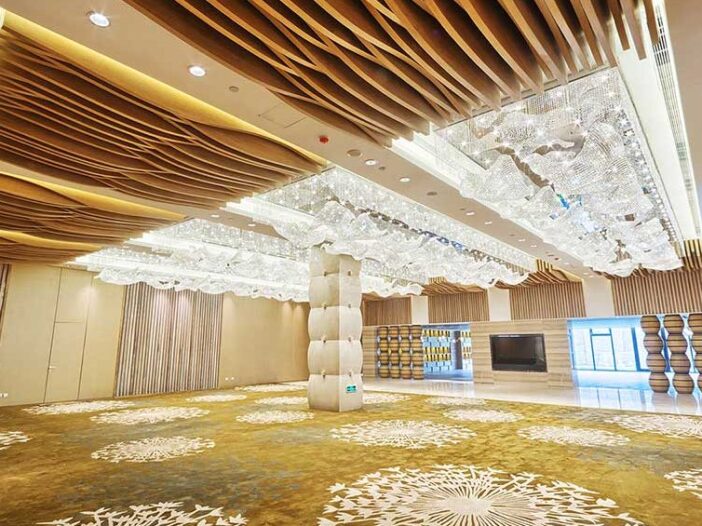
Event Planner’s Tips for Great Audio Engineering Experiences in your venues.
Good audio engineers are critical for your events. That is one of the cornerstones of exceptional event teams. Live event planners that have the charge to find tech teams for their ballroom events can use this checklist when considering who their lead engineer might be. Great engineers plan for a ballroom by taking into account several factors.
Room acoustics
The audio engineer will consider the acoustics of the ballroom, which includes the size and shape of the room, the types of surfaces that make up the walls, floor, and ceiling, and the presence of any sound-absorbing materials. The engineer will need to decide how to best position speakers and microphones to achieve optimal sound quality and clarity.
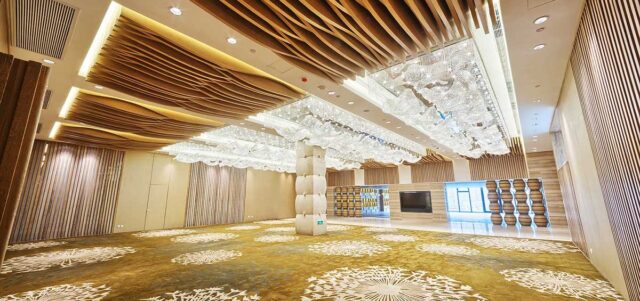
Event type
The audio engineer will consider the type of event that is taking place in the ballroom. Different types of events will have additional audio requirements. For example, a concert will require a different audio setup than a conference.
Sound reinforcement
The audio engineer will decide on the type of sound reinforcement system that is needed for the event. This will include the number and type of speakers, the number and type of microphones, and any other audio equipment that is required.
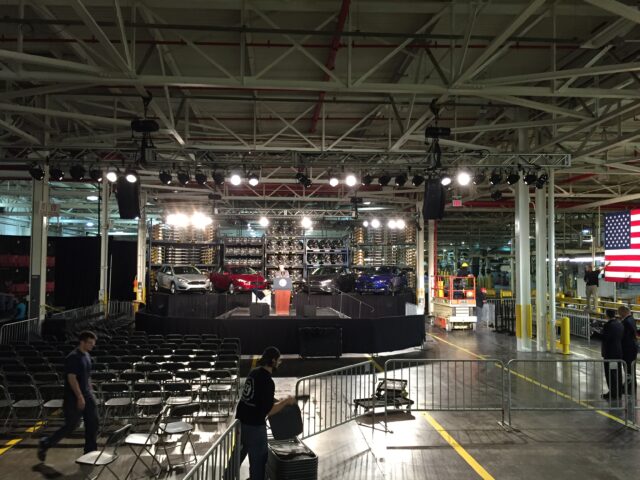
Sound mixing
The audio engineer will plan how the sound will be mixed during the event. This will include deciding the number of channels needed and how the sound will be routed through the mixing console.
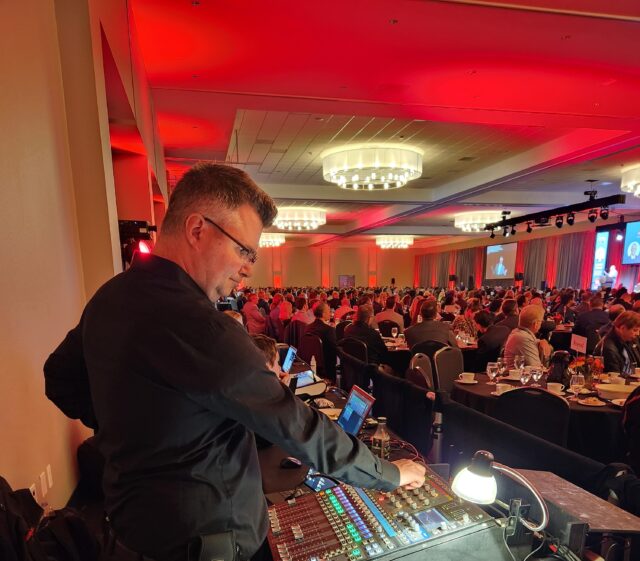
Sound levels
The audio engineer will decide on the appropriate sound levels for the event. This will include the overall volume of the sound and the balance between different sound elements, such as the vocals, instruments, and background music.
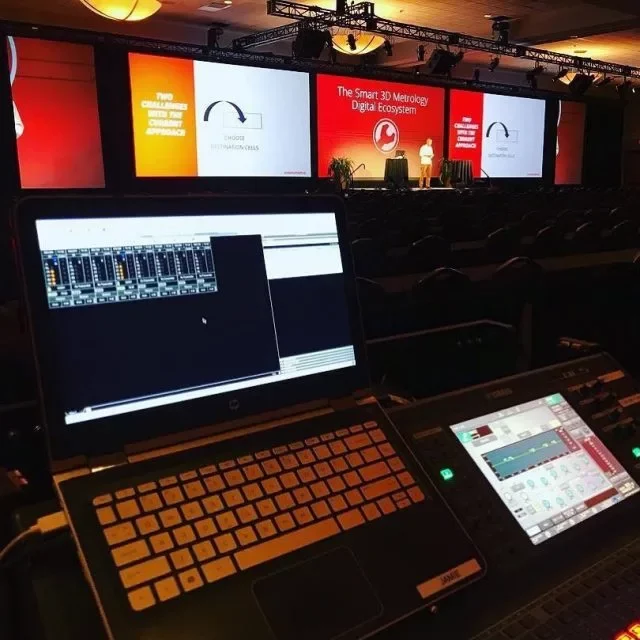
Safety and Compliance
The audio engineer will ensure that the audio equipment meets safety and compliance regulations, such as noise level limits and emergency announcements
Backup plan
The audio engineer will have a backup plan in case of equipment failure or other unforeseen issues. This will include having backup equipment on hand and knowing how to troubleshoot and fix problems quickly
Communication
The audio engineer will need to communicate effectively with the event planner, performers, and other members of the production team to ensure that the audio setup meets the needs of the event.
The audio engineer will also need to be present at the event to make any necessary adjustments to the sound and ensure that the audio works properly throughout the event. The audio engineer will also need to be prepared to adapt to any unexpected changes or issues that may arise during the event.
Conclusion
There you have it! Before your next big event, retrieve this list and consider going through them one by one. You will be glad you did. Audio is a broad category with elements of music recording and production to live sound. Many of your audio engineers may have started in and around these areas. It is an incredibly rewarding professional track with fantastic opportunities.
For more information consider visiting our industry associations site at www.avixa.org – the audio-visual integrated experience association.
To see more information about Mercury projects visit https://www.mercurysl.com/services/live-events/

